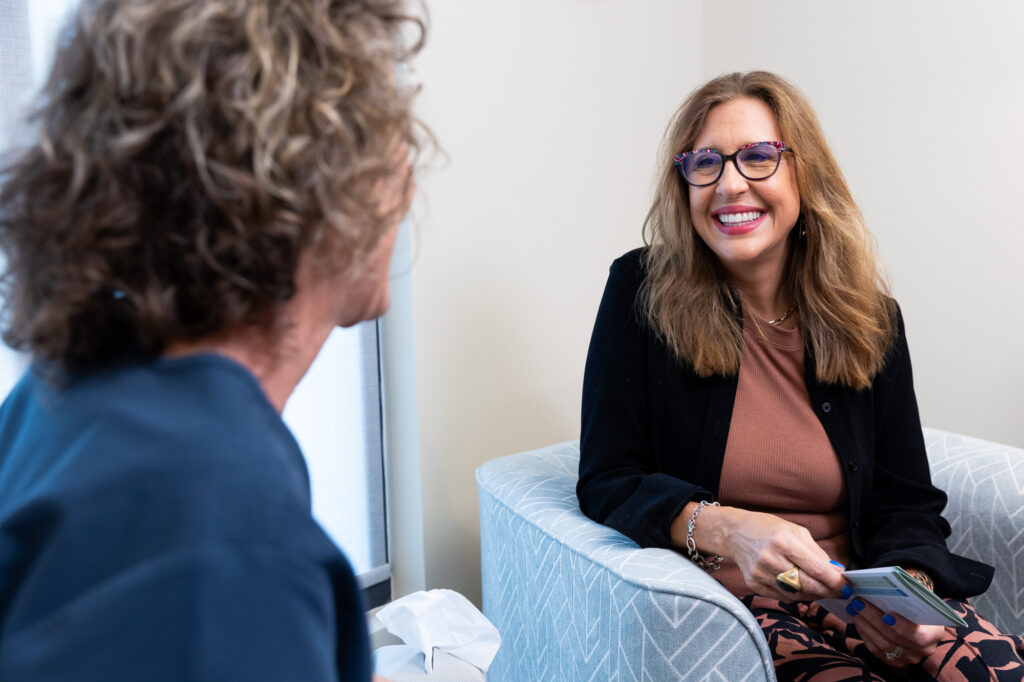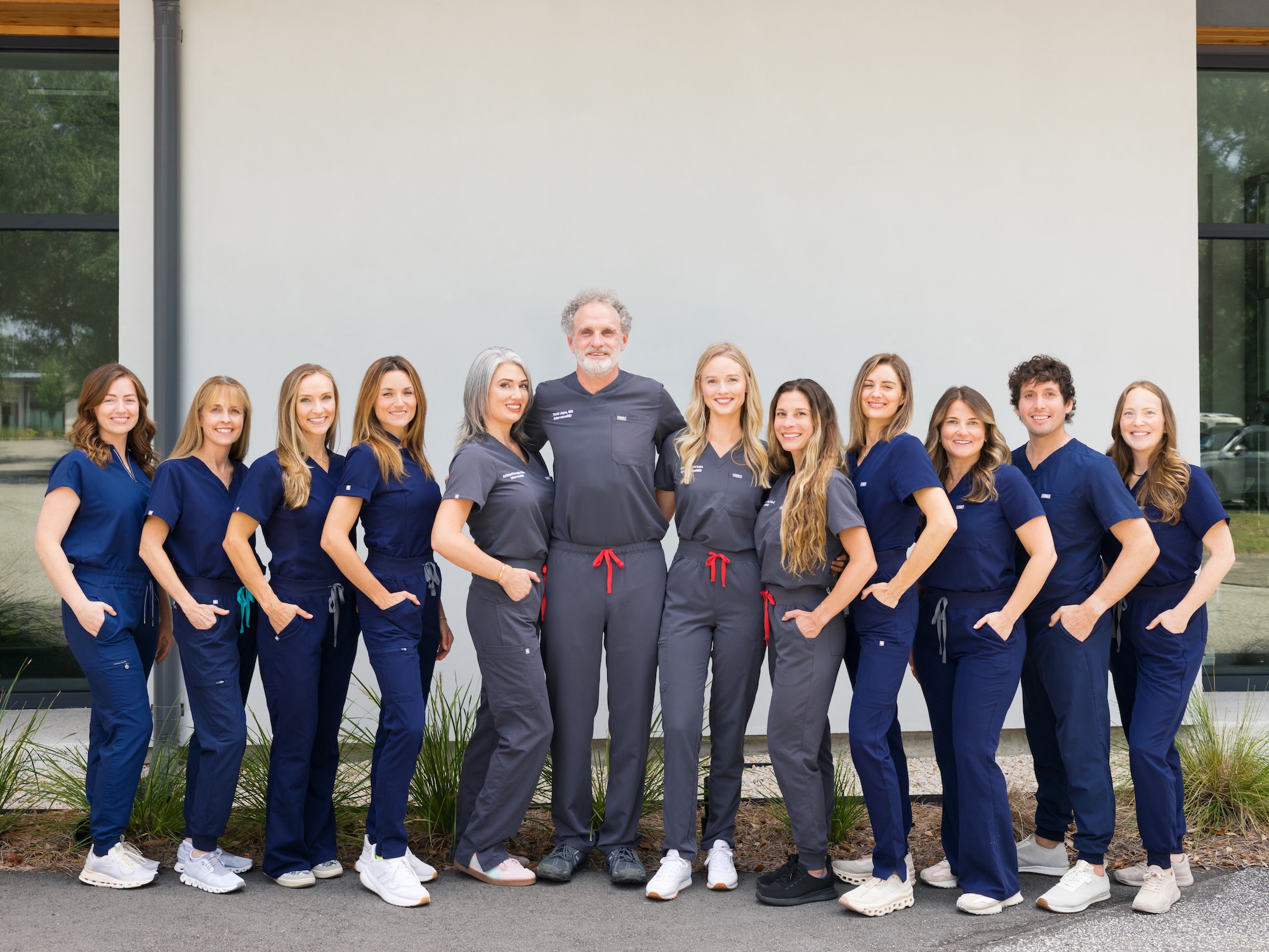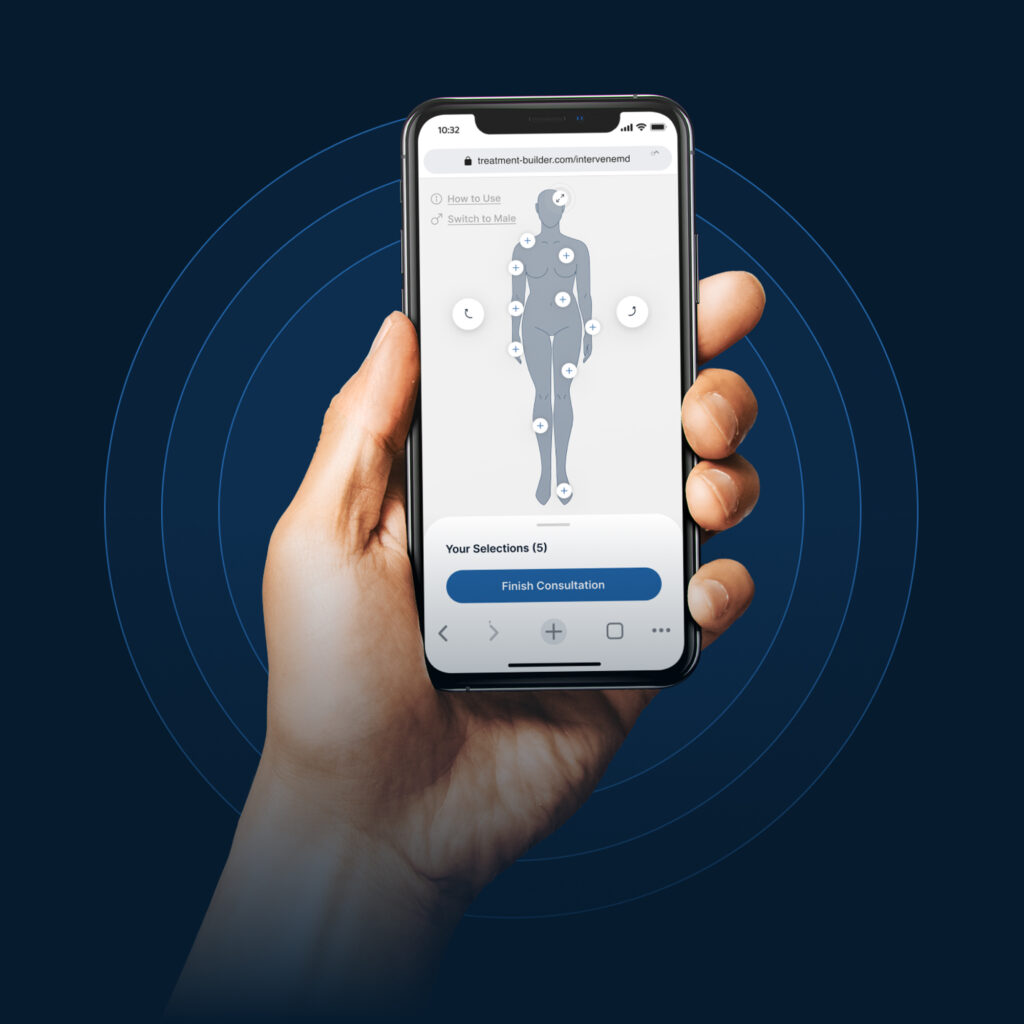
At InterveneMD, our experts understand how disruptive the symptoms of a hormonal imbalance can be—physically, mentally, and emotionally. For many patients, bioidentical hormone replacement therapy in Charleston, SC, has been a turning point, helping them take back control of their well-being.
But despite decades of research and proven success, bioidentical hormone replacement therapy (BHRT) remains one of the most misunderstood treatments in modern medicine. Too often, people unknowingly suffer at the hands of hormone challenges—unaware of how this revolutionary treatment can restore their quality of life. Our experts want to provide clarity to the BHRT process to help you make the right decision for your health.
Keep reading to learn more about the most commonly held misconceptions about BHRT. Want to speak with one of our hormone experts? Give us a call to start creating your treatment plan.
The Role of Hormones in the Body
Hormones are chemical messengers that regulate essential bodily processes. From sleep to metabolism to sexual function, more than 50 hormones contribute to a well-functioning system.
Hormones send powerful signals throughout the body, but even the slightest disruption can cause a variety of frustrating symptoms, including:
- Fatigue
- Constipation
- Depression or anxiety
- Mood swings
- Unexplained weight gain or loss
- Frequent urination
- Dry skin and hair
Symptoms related to a hormonal imbalance vary from patient to patient. These concerns can also mimic numerous other health conditions, making it difficult to find relief. However, expert guidance and thorough hormone testing help determine whether BHRT can address your symptoms and restore internal balance.
How Can Bioidentical Hormone Replacement Therapy Help?
Bioidentical hormone replacement therapy (BHRT) restores hormonal levels to help patients overcome symptoms that interfere with their day-to-day lives.
We use bioidentical hormones, which are molecularly identical to those your body naturally produces. Through blood testing and the Dried Urine Test for Comprehensive Hormones (DUTCH), our experts identify specific hormone deficiencies and craft tailored plans to resolve them. Once administered, bioidentical hormones restore balance and protect your long-term health.
Bioidentical hormone replacement therapy in Charleston is a highly customizable treatment. The best method for treating your hormone imbalance depends on your unique lifestyle. We offer BHRT in the following forms at InterveneMD:
- Patches
- Gels
- Creams
- Pills
- Injections
- Implanted pellets
Dispelling the Top 3 Misconceptions About BHRT
Bioidentical hormone replacement therapy can be a life-changing treatment option—but determining if it’s right for you may feel like a challenge. With so much conflicting advice regarding HRT, how can you make the best choice for your health?
You deserve clarity—which is why our trusted professionals are here to provide truth in the midst of so many misconceptions, so you can make informed, confident decisions.
1. Only Older Patients Need BHRT
Although many patients use bioidentical hormone replacement therapy near Charleston to treat age-related hormone imbalances, BHRT can help patients of all ages feel their best.
Low estrogen primarily affects middle-aged women who have already gone through menopause. During this period, a woman’s menstrual cycle becomes more irregular and eventually stops altogether as the ovaries decrease estrogen production. With this change comes a variety of disruptive symptoms, including hot flashes, urinary incontinence, and brain fog.

However, low estrogen can affect younger female patients as well. Conditions like primary ovarian insufficiency (POI), otherwise known as premature menopause, can cause the ovaries to stop producing eggs before the age of 40, leading to reduced estrogen levels. Eating disorders and autoimmune conditions can also impact estrogen levels.
For men, testosterone levels peak during early adulthood and drop 1% each year after age 40. This decrease can lead to everything from reduced muscle mass to impotence.
That said, conditions like primary hypogonadism can negatively impact testosterone production for male patients of all ages. In a healthy reproductive system, the pituitary gland can sense low testosterone levels and respond accordingly. But when the testes are damaged—by congenital disorders, injury, or anabolic steroid use—testosterone levels remain low.
2. Women Only Need Estrogen, and Men Only Need Testosterone
Many patients believe that testosterone is just for men and that increased estrogen only benefits women. But in reality, we all need a balance of reproductive hormones to function at our best.
Oral contraceptives can suppress a woman’s testosterone production, leading to hair loss, poor libido, decreased muscle mass, difficulty losing body fat, vaginal dryness and difficulty achieving orgasm, among many other symptoms. Conditions affecting the ovaries can impact testosterone levels, including ovarian insufficiency and a loss of the menstrual cycle caused by extreme stress.
Similarly, men need estrogen for their reproductive health. But when estrogen levels become too low, issues like increased belly fat, reduced sex drive, and osteoporosis can arise. Too much estrogen can have the opposite effect, often leading to slowed growth and infertility.
3. “Normal” Lab Results Indicate Your Hormone Levels Are Fine
If you’ve undergone hormone testing through your primary care physician, your provider may have told you that your hormones came back “normal.” However, these results don’t take the larger picture into consideration and could be leaving your health concerns unanswered.
Traditional medicine uses conventional ranges for hormone testing. This means that as long as you’re in the range of what’s acceptable, your results come back as “normal.” But if your results are closer to either end of the range, you may still experience hormone-related symptoms that disrupt your routine.
Most people don’t function at their best when their hormone levels are just “normal”—they thrive when their hormones are optimized. This is something only a functional medical professional can help you achieve with bioidentical hormone replacement therapy near Charleston.
4. Feeling “Fine” Means Your Hormones Must Be Okay
Hormonal imbalances can sneak up on us when we least expect them, especially when you feel “fine” and aren’t coping with any symptoms.
Optimal hormone levels are essential to a well-functioning body. We need sex hormones for a variety of bodily functions, including heart, brain, and bone health.
Hormone issues are often silent, with some patients facing significant imbalances while presenting as asymptomatic. These issues can keep you from performing at your best—even if you don’t necessarily feel it.
The InterveneMD BHRT Treatment Process
Our experts see and understand your battle with hormone-related symptoms. Though concerns like brain fog and low energy levels can be physically and emotionally draining, we want to help you achieve renewed vitality.
Enhancing your well-being is our life’s mission at InterveneMD. Here’s what you can expect when you choose our experts for bioidentical hormone replacement therapy in Charleston, SC.
Consultation
Scheduling your consultation with one of our hormone experts is your first step in the BHRT treatment process. Here, we will listen to your concerns—never dismiss or ignore them.
During your initial appointment, your provider will ask you to describe your symptoms and when they first started impeding your daily function. Be prepared to also answer questions regarding your medical history and medications you take. This information will help your provider gain a better sense of the health concerns you’re coping with.
Testing
If your provider suspects that a hormone deficiency may be to blame for your concerns, they will then perform a comprehensive blood panel to assess your hormone levels. Your provider may also send you home with a DUTCH panel, which you can complete by yourself from the comfort of your own home.

A member of our clinical team will be happy to meet with you to review your DUTCH kit and your personal schedule to ensure all samples are collected accurately. This is very important for women in particular, as results will vary greatly depending on where you’re at in your menstrual cycle.
Be sure to use the prepaid shipping label to send your DUTCH panel to the lab once you’ve collected your samples. Most results are available within the following 4 weeks.
Treatment
After receiving your results, your provider will help you create a treatment plan that’s tailored to your unique imbalance. Depending on the symptoms you report and the results from your hormone panel, your provider will determine the proper dosage to alleviate your concerns. The two of you will also identify which BHRT method supports your lifestyle and goals.
If you choose implanted pellets for your bioidentical hormone replacement therapy in Charleston, your provider will perform a short in-office procedure to administer your medication. They will make a small incision in your hip or buttock before inserting a predetermined number of pellets and suturing it closed.
If you choose a different form of BHRT, your provider will teach you how to administer your medication and then send you home with the proper dosage.
Check-Ins
Once you’re on BHRT for 2 to 4 weeks, you will schedule a follow-up appointment with your provider. At this time, they will analyze your progress and may adjust your dosage if your symptoms have not improved.
If your provider approves you to continue with treatment, you will schedule additional check-ins on a monthly basis. Your appointments will shift to every 3 to 6 months once your symptoms have completely subsided.
Most patients experience a noticeable reduction in symptoms within the first few weeks of starting treatment. The full benefits of BHRT may take several months to develop. Following a nutritious diet and exercising regularly can help you increase the effectiveness of your treatment plan.
Relief From Hormone-Related Symptoms Starts at InterveneMD
If you’re coping with symptoms related to a hormone imbalance, you may have spent years feeling “off” without any answers. Hormone issues can feel confusing, and finding the right treatment to alleviate them can be even more of a challenge.
With bioidentical hormone replacement therapy in Charleston, SC, you have the power to reclaim your well-being. With help from our medical professionals, overcoming hormone concerns has never been easier.
Invest in your long-term wellness at InterveneMD. Give us a call or schedule your appointment online to get started.
Searching for an erectile dysfunction treatment in Mt. Pleasant, SC? Visit our blog for more information.


